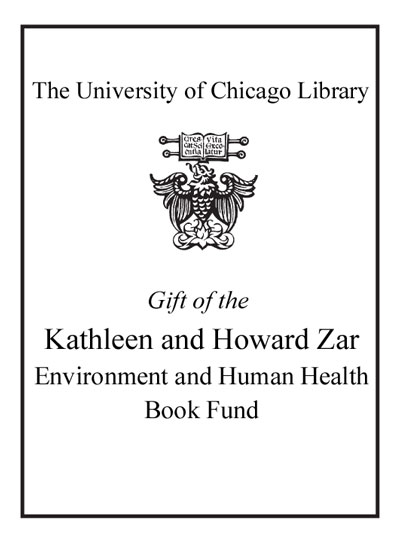Review by Choice Review
Probably the best of its kind, Food Fray is a strictly "popular" presentation with few conventional scientific citations, but a wealth of carefully endnoted anecdotes. Weasel (Portland State Univ.), a biologist with a special interest in feminist approaches to science, has the necessary expertise to examine the history and present exploitation of genetically modified (GM) crops. Readers obtain personal perspectives on the topic through interviews with participants in Africa, India, Europe, and the US. At times, too much really racy writing reduces readability. This negative-leaning presentation, not unbalanced as are most popular books on GM food, fails to condemn the violence and vandalism of "eco-nuts." That neglect, and other efforts to stir excitement, contrasts with a conclusion surprisingly mild, balanced, and likely on target (GM food is here to stay). Weasel examines the usual suspects: Bt crops, BST milk, virus-resistant papaya, failed tomatoes, biopharmaceuticals, and biofuels. She also identifies the usual conspirators: big government, big business, big countries. Some sections provide a nuanced discussion of ethics and alternatives; in other sections, conclusions seem arbitrary and reactive. This work would benefit from a partner in dialogue, such as J. Gressel's Genetic Glass Ceilings (CH, Jul'08, 45-6156). Well produced, clear fonts throughout, reasonable index. Summing Up: Recommended. All readers/libraries. L. C. Davis Kansas State University
Copyright American Library Association, used with permission.
Review by Publisher's Weekly Review
Eighty percent or more of all corn, cotton and soybeans grown in the United States consists of genetically modified (GM) varieties, according to Weasel. But she only gives these statistics at the end of her account of the battle over GM organisms, leaving readers till then with the impression that an equal "tug-of-war" is in progress. The author, a biologist at Portland State University in Oregon, also skimps on the science in the battle over whether genetically modified organisms and foods are safe for both the environment and people, focusing instead on the legal, political and emotional aspects of the tussle between big business, which claims that GM products can solve world hunger and reduce disease, and environmentalists asserting that bad science is being driven by corporate greed. She summarizes a number of the most important skirmishes, such as over golden rice (manipulated to have high levels of vitamin A) and the injection of artificial bovine growth hormone into cattle to boost milk production. But her account is relatively flat and superficial, doing a workmanlike job of covering political issues but leaving readers short of what they need to evaluate GM. (Dec.) (c) Copyright PWxyz, LLC. All rights reserved
(c) Copyright PWxyz, LLC. All rights reserved
Review by Choice Review
Review by Publisher's Weekly Review


